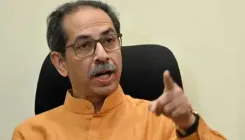Are Indian Courts Overwhelmed with 5.29 Crore Pending Cases?

Synopsis
Key Takeaways
- The backlog in Indian courts has reached 5.29 crore cases.
- District and subordinate courts are facing significant staffing shortages.
- Arrears committees have been established to expedite long-pending cases.
- The number of Fast Track Courts has increased to address serious crimes.
- Efforts are ongoing to fill judicial vacancies in the higher courts.
New Delhi, July 27 (NationPress) Indian courts are currently facing a staggering backlog of 5.29 crore pending cases, as revealed by official data from the National Judicial Data Grid (NJDG) up to July 21. The majority of these cases, approximately 4.65 crore, are found in district and subordinate courts, while the High Courts have 63.30 lakh cases pending, and the Supreme Court is dealing with 86,742 cases.
In addition to the overwhelming number of cases, district and subordinate courts are struggling to operate at full capacity. As reported by the Department of Justice, the sanctioned strength of judicial officers was 25,843 as of July 21, 2015, but currently, only 21,122 are in position.
According to a statement from the Law and Justice Ministry, the responsibility of filling vacancies in the district and subordinate judiciary lies with the respective State/UT governments and High Courts.
To address the backlog, arrears committees have been established in all 25 High Courts to expedite cases pending for over five years. Similar committees are now functioning within the district courts as well, as per the Ministry's announcement.
In a recent reply in Parliament, Minister of State (Independent Charge) for Law and Justice Arjun Ram Meghwal detailed the government’s efforts to fill vacancies in the Supreme Court and High Courts. He mentioned that between May 1, 2014, and July 21, 2025, 70 judges were appointed to the Supreme Court, alongside 1,058 new judges and 794 Additional Judges being made permanent in the High Courts during this timeframe. The sanctioned judge strength of the High Courts has risen from 906 in May 2014 to 1,122 currently.
Furthermore, Fast Track Courts have been established to handle cases involving serious crimes, as well as those concerning senior citizens, women, and children. As of June 30, 2025, a total of 865 Fast Track Courts are operational across the nation.









